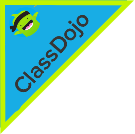| Overview | Curriculum & Progression | Gallery | Useful Links |
| Working Scientifically | EYFS – Understanding of the world | Cross-curricular links: STEAM | Career Related Learning | Clubs and PIE Challenge |
At Reid Street, we have created science progression documents which, from September 2019, will map our school’s curriculum coverage across EYFS, KS1 and KS2. The clear structure and incremental nature of these documents is designed to provide guidance as to what teaching and learning will be covered within particular year groups and key stages.
The progression documents have been designed to ensure that key concepts, skills and vocabulary are embedded across the school, as well as putting in place incremental learning steps which will continue to build on and broaden children’s scientific knowledge and understanding.
Children’s understanding, capability within and mastery of science will be supported through this progressive curriculum by:
- Using continuous opportunities to retrieve previous knowledge, such as through quizzes and POP tasks.
- Providing opportunities for pupils to apply and secure existing skills and understanding.
- Building new learning onto pupils existing subject knowledge, by highlighting and making links to core threads – key concepts and learning – which run across science modules and the wider curriculum.
By implementing this progressive curriculum for science, we will equip pupils with the key subject knowledge needed to meet the end of Key Stage Attainment Targets of the National Curriculum and the Teacher Assessment Framework for Key Stage 1 and 2.
In science, the curriculum programme of study is broken up into discrete areas:
- Plants
- Animals including humans
- Earth and space
- Electricity
- Rocks
- Evolution and inheritance
- Materials
- Sound
- Forces
- Living things and their habitats
- Light
- States of matter
- Seasonal changes
Wherever possible, the teaching of these strands are embedded into creative cross-curricular topics, but through necessity some areas of science are taught discretely in order to provide pupils with the most relevant and literal learning experiences; for example seasonal changes is a subject that will be built into discrete science lessons across the year so that pupils can fully engage with what is being taught through their first-hand experiences and observations.
The progression document for each of these strands has built in opportunities to consolidate and embed previous learning. Pupils’ existing knowledge will be used as a starting point on which to build, then clear next steps will be implemented in order to support pupils in their development as scientists – ensuring that the understanding and concepts taught expand and extend pupils learning and support their continued progression, knowledge and competency.
The specific (Tier 3) vocabulary linked to science is also built into the progression documents. Time is spent supporting pupils in gaining an understanding of a broad range of key scientific language, so that pupils can confidently access the teaching and learning activities provided to them.
Additional opportunities for pupils to enhance their scientific understanding and pursue their independent enquiries are provided through extra-curricular clubs and nationwide initiatives such as the Big PIE Challenge (an enterprise initiative which provides vocational experiences).
Please click here to view the animals including humans document.
Please click here to view the earth and space document.
Please click here to view the electricity document.
Please click here to view the evolution and inheritance document.
Please click here to view the forces document.
Please click here to view the light document.
Please click here to view the living things and their habitats document.
Please click here to view the materials document.
Please click here to view the plants document.
Please click here to view the rocks document.
Please click here to view the sound document.
Please click here to view the states of matter document.
Please click here to view the seasonal changes document.
Please click here to view the teacher assessment frameworks at the end of key stage 1 document.
Please click here to view the teacher assessment frameworks at the end of key stage 2 document.
Please click here to view the primary national curriculum document.






